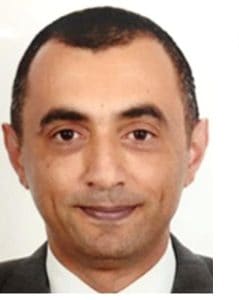
Saudi Arabia is likely to witness a rise in the number of digital banks, while the UAE sees continued branch optimization, analysts from Moody’s Investors Service told TRENDS.
“We expect more digital banks to operate in the Kingdom. Banks have so far been hesitant to close branches as demand for branch services continues. Longer-term, we do expect branch numbers to go down,” said Ashraf Madani, Vice-President Senior Analyst at Moody’s.
Despite continuous branch network optimization, operating expenses for UAE banks will increase owing to costs and investments in staff and technology, said Nitish Bhojnagarwala, Vice-President Senior Analyst at Moody’s.
However, he added that higher revenue generation will drive strong and stable efficiency for UAE banks.
In November 2021, Saudi Central Bank (SAMA) Governor Fahd Al-Mubarak reportedly said that the Kingdom is going to license more digital banks.
In June 2021, the Saudi Cabinet approved licenses for STC Bank and the Saudi Digital Bank. In February 2022, the Cabinet approved the Minister of Finance to issue a permit to D360 Bank, which will be established with a SAR 1.65 billion capital through a consortium of individual and corporate investors and the Public Investment Fund (PIF) as one of the key investors.
Meanwhile, UAE’s leading banks — Emirates NBD, Mashreq and Commercial Bank of Dubai — were among the first to offer digital-only services. Emirates NBD’s Liv., Mashreq’s Neo and CBD’s CBD set the pace for prolific growth in the segment.
Stress and Concerns
Deposit concentrations are generally a concern for any banking system as it increases the vulnerability of the banks to withdraw these deposits.
“In Saudi Arabia, the government and government-related entities are large depositors and banks usually lend or invest these deposits with a maturity gap between deposits (usually short-term) and asset (long term) and therefore could stress banks if asset and liability mismatches are not managed properly,” Madani said.
The ratings agency has noticed faster loan growth in Saudi Arabia compared to the growth in deposits in recent years.
“Our expectation for this trend to continue in the near future and thus the reliance on market funding will increase from low levels,” he noted.
As for the UAE, banks will face deteriorating loan quality due to the delayed effect of the pandemic shock.

“We expect problem loans to rise, particularly among the smaller banks, due to the lagging effect of economic contraction in 2020. With economic recovery underway, we also expect asset risk to increase in certain sectors such as construction, real estate, food and beverages and other tourism-related services due to excess supply,” Bhojnagarwala said.
As a result, systemwide problem loans will increase to around 7 percent of total loans during 2022, from 6.4 percent as of December 2021.
Ongoing loan restructurings and the gradual withdrawal of pandemic-related support packages will put further pressure on asset quality during 2022, he added.
Impact of Russian-Ukraine conflict
The Russian-Ukrainian war will have a minimal impact on the operating environment for banks in Saudi Arabia and UAE, given their minimal dealings with the two countries, analysts said.
“The region, in general, is distant from the conflict. The operating environment in Saudi and, more generally, in the GCC is supported by higher oil prices as the GCC governments’ fiscal position is positively correlated with oil prices,” said Madani.
According to Bhojnagarwala, uncertainty around global macroeconomic conditions has increased due to the military conflict between Russia and Ukraine, but “we do not expect a significant impact on UAE banks given their limited direct exposures to these two countries”.
Earlier this month, S&P Global Ratings said that banks in the UAE and Saudi Arabia would remain relatively insulated from the fallout of the Russia-Ukraine conflict due to limited dealings between the two.
The major indirect effects of the conflict will include higher oil prices, which will bolster oil-exporting economies and weigh on oil-importing countries, the ratings agency said.








